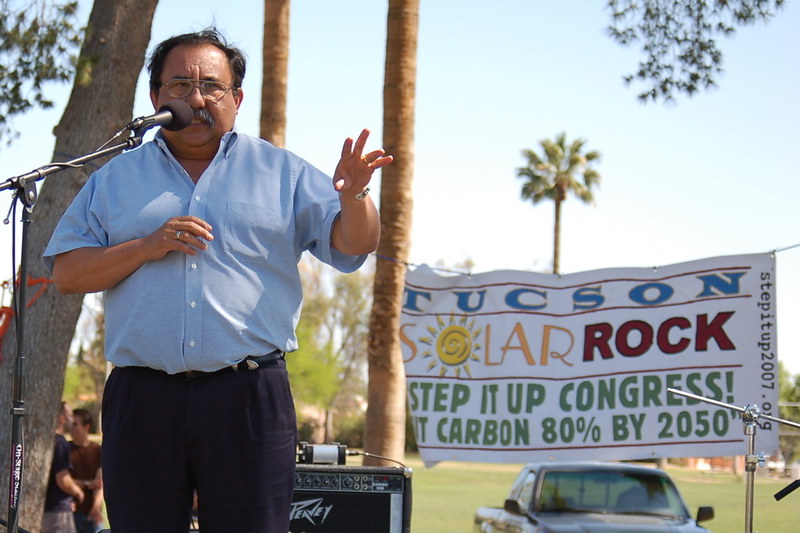To help you make informed decisions while voting in the Arizona midterm election, the Daily Wildcat broke down the 10 propositions on the ballot this year.
Prop 128 – Legislative Changes to Ballot Initiatives with Invalid Provisions Amendment
Proposition 128 would give authority to the Arizona legislature to correct, override or divert funding from a ballot initiative or vote that have been ruled illegal or unconstitutional by the Arizona or United States Supreme Courts.
If Prop 128 does not pass, the laws currently in place for measures passed by the people to be amended, funding diverted or be overridden would remain the same.
Prop 129 – Single-Subject Requirement for Ballot Initiatives Amendment
If Prop 129 is passed, a change to the Arizona constitution would be made that would affect what shows up on future ballots. Specifically, it would limit ballot measures to address one single subject and that subject would need to be mentioned in the measure’s title.
This would end what’s known as “log-rolling,” where multiple measures are combined in one bill so people can only vote for or against all of them at once — even if the mixture of measures share little to no similarities. Prop 129 solves this issue because the new rule would require each measure to be voted on individually.
Prop 130 – Property Tax Exemptions Amendment
If passed, Prop 130 would group four sections of the Arizona Constitution regarding property taxes into one section, remove determination of the amounts of certain property tax exemptions and allow property tax exemptions for veterans with disabilities and widows.
Prop 131 – Create Office of Lieutenant Governor Amendment
If voted on by Arizona residents, Prop 131 would induct a lieutenant governor for the state of Arizona. This position would fulfill the role of governor in the event that the sitting governor is unable to fulfill their duties due to illness, disability or death. The lieutenant governor will be selected by the gubernatorial candidate and will run beside them on a joint ticket.
Prop 132 – 60% Vote Requirement for Ballot Measures to Approve Taxes Amendment
Prop 132 would require a 60% majority vote to pass ballot initiatives and any amendments that would raise taxes.
Prop 209 – Healthcare Debt Interest Rate Limit and Debt Collections Exemptions Initiative
If passed, Prop 209 would change Arizona law concerning debt collection. Specifically, it would reduce the maximum interest rate on medical debt from 10% annually to no more than 3% annually. It would also keep certain assets from being included in debt collection, which would protect people from losing their houses, cars, certain possessions or more to debt collectors.
Prop 211 – Campaign Finance Sources Disclosure Initiative
This proposition aims to reform campaign finance disclosures. If passed, it would require campaigns to disclose the original sources of their donors if they spend above a certain amount on campaign media. The disclosure requirement applies to local campaigns that spend $25,000 or more or statewide campaigns that spend $50,000 or more.
Some proponents of Prop 211 argue that this reform will discourage the influence of “dark money” in Arizona elections, while opponents of Prop 211 say the disclosure is an attempt to stifle campaign contributions.
Prop 308 – In-State Tuition for Non-Citizen Residents Measure
If approved, Prop 308 would allow all students, regardless of citizenship status and including DACA students, to receive in-state tuition at Arizona universities if they have attended an Arizona high school for two years and graduated from an Arizona high school.
To read more about Prop 308, Daily Wildcat News Editor Payton Toomey broke it down it down in greater detail in a stand-alone article.
Prop 309 – Voter Identification Requirements for Mail-In Ballots and In-Person Voting Measure
Proposition 309 could change what type of voter identification is required when submitting a ballot by mail-in or in person if passed. According to the outline of the proposition, voters would be required to provide a photo ID issued by Arizona State, the U.S. government or a tribal government when voting in person.
Currently photo identification is not required to receive a ballot in person if an individual provides two other forms of written identification such as a birth certificate or social security number.
Those who opt to vote via mail-in ballot would be required to provide their drivers license number, social security information, birth date and other personal information on the affidavit accompanying their ballot.
Some who are endorsing Prop 309 believe security measures for voting practices could be improved and think this would prevent voter fraud.
Some who are against the proposition have raised concerns about voter privacy and the barriers this would add to accessibility of voting.
If Prop 309 is not passed, the current law in place about what identification materials are required to obtain a ballot would remain unchanged.
Prop 310 – Sales Tax for Fire District Funding Measure
This proposition aims to raise revenue for fire districts throughout the state. Passing Prop 310 would establish a 0.1% sales tax for 20 years beginning on January 1, 2023. The funds would be pooled into a Fire District Safety Fund and distributed in proportion to each district’s total property value.
Some proponents of Prop 310 say that the tax will help underfunded fire districts hire the personnel and purchase the equipment needed to improve operations, especially emergency response times. Some opponents of Prop 310 argue that the tax is unnecessary, because fire districts already receive a portion of Arizona property taxes. The Arizona Free Enterprise Club called the tax, “a bailout for fire districts who have recklessly and wastefully spent taxpayer money.”
More:
To learn more, go to the Arizona Secretary of State website and find the 2022 ballot measures webpage.
Follow the Daily Wildcat on Twitter








